The world of cryptocurrency is no stranger to drama, but few stories have shaken the industry like the collapse of Terraform Labs and the legal saga of its co-founder, Do Kwon. On August 12, 2025, Kwon stood in a New York courtroom, dressed in a yellow prison jumpsuit, and pleaded guilty to two fraud charges tied to the $40 billion implosion of TerraUSD and Luna in 2022. For those of us who followed the crypto boom with wide-eyed optimism, this moment feels like the closing chapter of a cautionary tale—one that exposes the risks of unchecked ambition in a volatile market. Let’s unpack how Kwon went from being hailed as a visionary to admitting to one of the largest frauds in crypto history.
The Rise of Terraform’s Ambitious Dream
Do Kwon, a 33-year-old South Korean entrepreneur, co-founded Terraform Labs in 2018 with a bold vision: to create a blockchain ecosystem that could rival giants like Bitcoin and Ethereum. At the heart of this vision were two cryptocurrencies: TerraUSD (UST), an algorithmic stablecoin designed to hold a steady $1 value, and Luna, a more volatile token tied to UST’s stability mechanism. The promise was simple yet revolutionary—UST would maintain its peg through a complex algorithm called the “Terra Protocol,” which balanced supply and demand between UST and Luna. Investors were drawn to the idea of a stablecoin that didn’t rely on traditional reserves but instead used code to keep its value steady.
By spring 2022, Terraform’s ecosystem was a juggernaut. Luna’s value soared to $50 billion, and UST was marketed as a reliable alternative to cash. Kwon, often called “the cryptocurrency king,” became a celebrity in the crypto world, with his confident demeanor and sharp tweets fueling his reputation. Retail and institutional investors poured tens of billions into Terraform’s products, believing they’d found a safe haven in the wild west of crypto. But beneath the glossy surface, trouble was brewing.
The Cracks Begin to Show
The unraveling began in May 2021, when TerraUSD briefly lost its $1 peg—a warning sign that its algorithmic stability wasn’t as foolproof as advertised. Kwon reassured investors, claiming the Terra Protocol had automatically restored the peg. It sounded convincing, and for a while, it worked. The market’s faith in Terraform held, and Luna’s value kept climbing. But here’s where things get murky: prosecutors later revealed that Kwon’s claims were a lie. Instead of an algorithm saving the day, a high-frequency trading firm had secretly bought millions of dollars’ worth of UST to prop up its price. Kwon knew this but didn’t disclose it, misleading investors about the true stability of his stablecoin.
This deception wasn’t just a white lie—it was the foundation of a house of cards. By spring 2022, Terraform’s ecosystem was valued at over $50 billion, but it was built on a fragile illusion. When TerraUSD depegged again in May 2022, this time more severely, panic set in. A massive sell-off ensued, wiping out $40 billion in market value for UST and Luna holders. The collapse didn’t just hurt Terraform; it triggered a domino effect across the crypto market, contributing to the downfall of firms like Three Arrows Capital, Voyager Digital, BlockFi, and even FTX. For everyday investors, the losses were devastating—retirement savings, college funds, and life savings vanished overnight.
A Fugitive on the Run
As Terraform’s empire crumbled, Do Kwon didn’t stick around to face the music. In September 2022, South Korean authorities issued a warrant for his arrest, accusing him of fraud and other charges. Kwon fled, sparking an international manhunt. For 18 months, he evaded capture, traveling through Europe on a false passport. His luck ran out in March 2023, when he was arrested in Montenegro. After months of legal battles, he was extradited to the United States in December 2024 to face a nine-count indictment, including securities fraud, wire fraud, commodities fraud, and money laundering conspiracy.
Kwon’s time on the run only amplified the public’s fascination with his story. Was he a mastermind who got in over his head, or a deliberate con artist? Social media buzzed with speculation, with some calling him a scapegoat for a volatile market and others branding him a villain who preyed on investors’ trust. Posts on X captured the polarized sentiment, with users debating his ethics and the broader implications of his actions.
The Guilty Plea: A Turning Point
Fast forward to August 2025, and Kwon’s legal saga took a dramatic turn. In a Manhattan federal courtroom, he pleaded guilty to two charges: conspiracy to commit fraud and wire fraud. This was a stark reversal from his January 2025 not guilty plea to the full nine-count indictment. Standing before U.S. District Judge Paul Engelmayer, Kwon admitted to making “false and misleading statements” about TerraUSD’s stability and failing to disclose the trading firm’s role in propping up the peg. “What I did was wrong,” he said, a rare moment of humility for a man known for his bravado.
The plea deal was strategic. Prosecutors agreed to recommend a sentence of no more than 12 years, despite Kwon facing up to 25 years in prison. He also agreed to forfeit $19 million in ill-gotten gains and relinquish his interest in Terraform and its cryptocurrencies. Additionally, Kwon had already settled with the U.S. Securities and Exchange Commission in 2024, agreeing to an $80 million civil fine and a lifetime ban from crypto transactions as part of a $4.55 billion settlement. His sentencing is set for December 11, 2025, and prosecutors may allow him to serve part of his sentence abroad after completing half his U.S. term.
The Bigger Picture: Lessons from the Collapse
The Terraform collapse isn’t just about one man’s missteps—it’s a wake-up call for the crypto industry. Kwon’s case exposes the dangers of algorithmic stablecoins, which promise stability but can crumble under pressure. It also highlights the need for stronger regulatory oversight in a market that’s often compared to the Wild West. U.S. Attorney Jay Clayton called Kwon’s actions “one of the largest frauds in history,” a stark reminder that the hype around crypto can mask serious risks. Investors trusted Terraform’s promises, only to learn that even “stable” assets can be built on shaky foundations.
Kwon’s guilty plea also underscores the growing international cooperation in tackling crypto-related crimes. His extradition from Montenegro and the coordination between U.S. and South Korean authorities show that regulators are catching up with the decentralized finance (DeFi) world. For investors, this case is a reminder to dig deeper than glossy promises and charismatic founders.
A Precedent for Crypto Accountability
As Kwon awaits sentencing, his case is poised to set a legal precedent. The outcome could shape how regulators approach future crypto fraud cases, especially those involving complex financial instruments like stablecoins. It may also influence investor sentiment, which has been battered by high-profile collapses like Terraform and FTX. While Terraform’s tokens have seen limited trading activity since the crash, the legal fallout could restore some confidence by showing that accountability is possible, even in a decentralized market.
For Kwon, the road ahead is uncertain. He still faces charges in South Korea, and his reputation as a crypto innovator is in tatters. His story serves as a sobering lesson: in the high-stakes world of crypto, ambition without integrity can lead to catastrophic consequences.
A Cautionary Tale for the Crypto Age
Do Kwon’s rise and fall is more than a headline—it’s a mirror held up to the crypto industry’s strengths and flaws. His guilty plea closes a chapter, but the scars of the $40 billion Terraform collapse will linger for investors and the market alike. As we move forward, the question isn’t just about what happens to Kwon, but how the industry can rebuild trust and prevent the next big crash. For now, Kwon’s story reminds us that even in a world of code and algorithms, human accountability still matters.
Sources:
- US News, “Do Kwon Pleads Guilty to US Fraud Charges in $40 Billion Crypto Collapse,” August 12, 2025.
- The Hill, “Crypto mogul Do Kwon, known as ‘the cryptocurrency king,’ pleads guilty to fraud charges,” August 12, 2025.
- UPI, “Former Terraform CEO pleads guilty to fraud in massive crypto scheme,” August 13, 2025.
- Banking Dive, “Do Kwon pleads guilty to fraud counts,” August 13, 2025.
- Al Jazeera, “South Korean crypto mogul Do Kwon pleads guilty to fraud,” August 13, 2025.
- Coin Edition, “Do Kwon Pleads Guilty to Fraud Charges in $40 Billion Terra LUNA Collapse Case,” August 13, 2025.
- AInvest, “Terraform Founder Do Kwon to Plead Guilty in $40B UST Fraud Case,” August 12, 2025.
- CoinGabbar, “Do Kwon Pleads Guilty in $40B Crypto Fraud Case,” 2025.
- X post by @PoppyKPoppie, August 5, 2025.




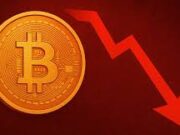






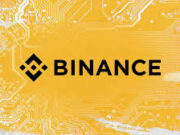




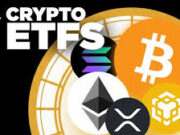




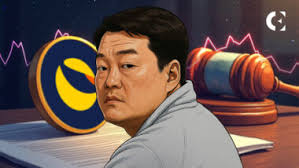


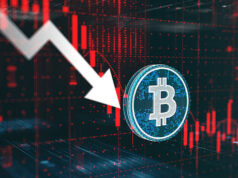



Dude was hiding in Montenegro while retail got crushed.
I’m doubt he’ll serve all 12 years.
he was shitposting on X while “Lunatics” lost everything?
That $19M forfeiture’s a joke compared to losses.
$40B vaporized, and he lied about that “Terra Protocol”
$4.55B SEC fine’s huge, but where’s the justice for retail investors
Kwon admitting he faked TerraUSD’s peg with a trading firm!!
a trading firm propped up UST? That’s next-level fraud.